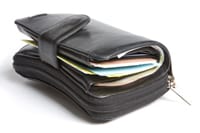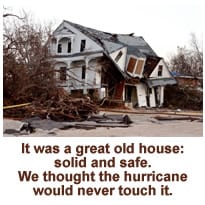 I did a talk last week about financial organization. We all know that we need to keep our financial paperwork in order but sometimes we forget the basics.
I did a talk last week about financial organization. We all know that we need to keep our financial paperwork in order but sometimes we forget the basics.
The first step is to know what is in your wallet or purse. If I were to take your wallet away from you right now, could you tell me what’s in it? All of it? Most people can tell me most, but not each and every item.
Why is this so important? If you lost your wallet or purse, could you quickly call to cancel your credit cards and replace each and every item? Probably not! Did you know that the sooner you cancel your credit cards, the less liable you are for purchases made in your name?
Take an inventory of everything in your wallet or purse. Start with your credit cards. I suggest that you make a copy of the front of each card. Make sure to write the toll free customer number for each card on the copies you made (that number is found on the back of the card). You should also make copies or keep records of other items in your wallet that you will need to cancel or replace. That could include your driver’s license or any club cards you might have. Make copies of those as well, or create a list. Then keep these copies in a safe place where you can easily find it. I’ve spoken before of having two copies in case of a home disaster like a fire or flood. You might want to keep one copy in a locked home safe and one copy in a safe deposit box at your bank.
Keeping a record of what is in your wallet or purse is one step towards financial organization. Do it this week to be prepared in case of an emergency.
